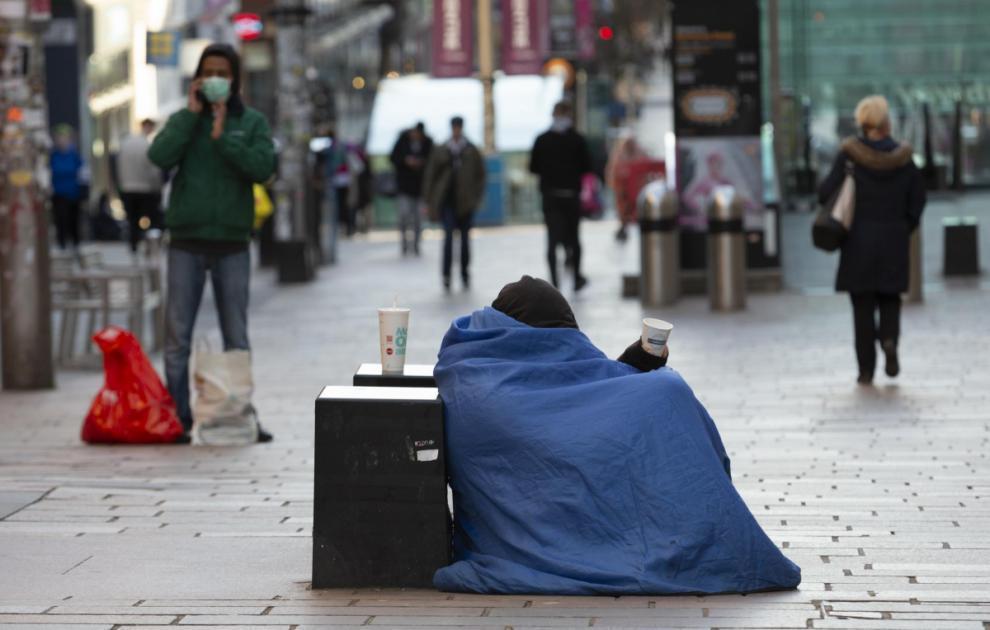The city of Glasgow is on the brink of a housing emergency, with homelessness reaching alarming levels, according to the councillor responsible for overseeing homelessness services. As the number of individuals in temporary accommodation continues to rise, along with an increase in the use of bed and breakfast establishments, authorities are bracing themselves for a significant surge in homelessness during the upcoming winter season.
The situation is expected to be exacerbated by the UK Home Office’s decision to expedite asylum claims in batches, which is likely to result in a higher number of individuals finding themselves without a home. If asylum seekers are granted a positive decision, they will be given a 28-day period to vacate the accommodation provided by Home Office contractor Mears. Failure to secure alternative housing within this time-frame will lead to their referral to the council’s homelessness team.
Allan Casey, City Convenor for Workforce, Homelessness, and Addiction Services, is proposing the official declaration of a housing emergency. In his motion, Casey urges the council to recognise the immense pressures faced by Glasgow City Council and the Health and Social Care Partnership, formally acknowledging that these pressures constitute a housing emergency. He also calls for concerted efforts to lobby the Scottish and UK Governments for the necessary funding and legislative changes required to address the crisis.
Estimates suggest that the acceleration of asylum applications could result in a cost of £53 million for the council in the coming year, with the Home Office indicating that it will not provide any financial assistance. Furthermore, alongside the rising number of individuals granted permission to stay, there has been an increase in the number of claims being refused. Consequently, more people find themselves ineligible for public support, falling under the category of ‘No recourse to public funds’ (NRPF), and the council anticipates a surge in rough sleeping as a consequence.
The influx of asylum seekers compounds an already growing number of individuals seeking assistance due to homelessness. Casey highlighted the strain on homelessness services in the city, citing the significant increase in approaches for housing advice and homelessness assistance made to the Health and Social Care Partnership. The escalating demand is predicted to lead to a higher number of homelessness applications and a greater reliance on temporary accommodation.
The combined effect of the increasing number of asylum decisions and the rising local homelessness rate has resulted in more individuals being placed in bed and breakfast establishments, placing the council in breach of unsuitable accommodation orders. Campaigners have long been advocating for a declaration of a housing emergency in Glasgow, emphasising the urgent need for action. They argue that the current system is failing, leaving thousands of homeless individuals languishing in substandard and squalid temporary accommodation, with detrimental effects on their physical and mental well-being.
As the situation reaches a critical point, Glasgow faces a pressing challenge in addressing the housing crisis. The declaration of a housing emergency, coupled with substantial funding and legislative support from the Scottish and UK Governments, is crucial in providing immediate relief and long-term solutions to combat homelessness and ensure the well-being and dignity of all residents in the city.


